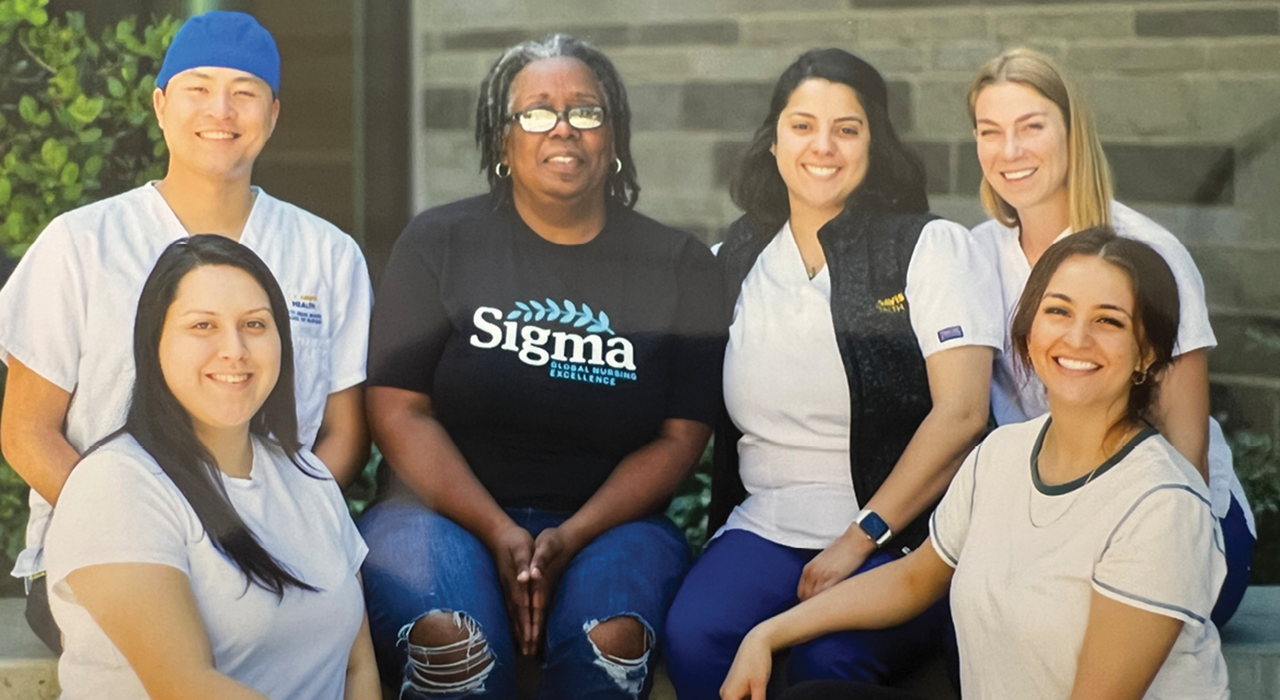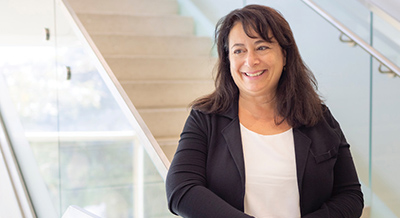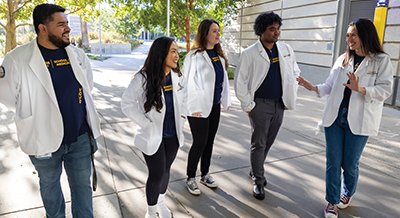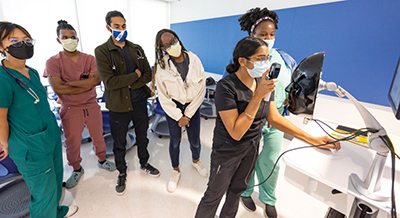Tonja Copeland woke up at 5 a.m. on July 3, the first day of summer quarter classes. She’s a second-year nursing student in the Master’s Entry Program in Nursing at the Betty Irene Moore School of Nursing at UC Davis.
“The excitement of getting into a nursing school is all my dreams come true,” said the 55-year-old member of the Class of 2023. “It’s a ‘let’s go moment’ for me every day.”
Before she applied to graduate school, Copeland counted herself out. She doubted her skills, even though she has been a licensed vocational nurse for more than 20 years. But during the School of Nursing application process, her perception changed.
“I got the sense they were looking at me more than just my grades. They gave me the chance to explain some things that happened in my past,” she recalled. “This whole program has surprised me since day one.”
Holistic review brings wider perspective
The 113 future registered nurses, nurse practitioners and physician assistants that started their UC Davis journeys this summer are, like Copeland, the result of an admissions process that looks beyond grades.
“We are looking for unique experiences that will increase the diversity of our cohorts. We are looking for diversity of thought, in addition to diverse experiences. We weigh applications based on different life experiences,” explained Associate Professor Jessica Draughon Moret, Ph.D., R.N., who chairs the school’s Recruitment, Admissions and Fellowship Committee. “Then we also look at GPA, aptitude, essays and letters of recommendation. We do look at all of that, but we also know those are not necessarily the best measure of program success.”
A holistic review considers experiences such as exposure to rural versus urban environments, military experience, and other markers common for people from underserved backgrounds. Applicants answer questions capturing socioeconomic background information such as attending an under-resourced high school, primary language other than English, living in a medically underserved area, and being the first in their family to attend college.
Forty six percent of students starting classes this summer were first-generation students.
When the school launched in 2009, faculty chose to not require a Graduate Record Examination (GRE) score for admission. They argued data from standardized tests is based on cultural bias and a barrier for underrepresented students.
“We also look at the clinical and life experiences applicants have that align with our mission, such as commitment to service, cultural sensitivity, empathy, capacity for growth, emotional resilience, and interpersonal skills,” added Teresa Thetford, DHSc, M.S., PA-C, N.P., director of the P.A. program. “We’re still looking at those demographics that we know may not otherwise rise to the top as a needed group if we only look at the GPA.”
That approach resulted in the school’s most diverse class of P.A.s last year, with more men, more students over 35, and the largest group of Hispanic students. Of the 2022 student body, 28.3% were Hispanic and 10.2% were Black, more than a third greater than the percentage of Black residents in California.
To attract a diverse pool, the school also developed videos advising prospective students on personal statements, letters of recommendation, and how to ensure clinical experiences meet requirements.
Diversity just the beginning
The school’s strategic plan, launched in 2022, also includes a diversity, equity and inclusion component. Leaders focus on moving past statistics to advance a climate that fosters inclusion and secures sustainable and supportive resources to ensure an environment where all can thrive.
“We have a diverse, clinically active faculty and engaged staff who support our students to exceed their hopes and aspirations as future health practitioners. That fosters a culture of collaboration and belonging,” said Dean Stephen Cavanagh, Ph.D., M.P.A., R.N., F.A.C.H.E., F.A.A.N. “When our students feel like they belong here, they act like they’re made to be here.”
Aliyah Bell, who will be prepared to sit for the P.A. licensing exam in a few months, applied to UC Davis because of its diversity, inclusiveness, collaboration, community connection and leadership.
“Since starting school, I made it my goal to continue to show that all of these values were important to me through various ways. Our school has done an amazing job at teaching us about how socioeconomic factors play a huge role in medicine. I feel that’s where UC Davis students will excel in the field,” said Bell, who was awarded the Student Excellence Award for Leadership.
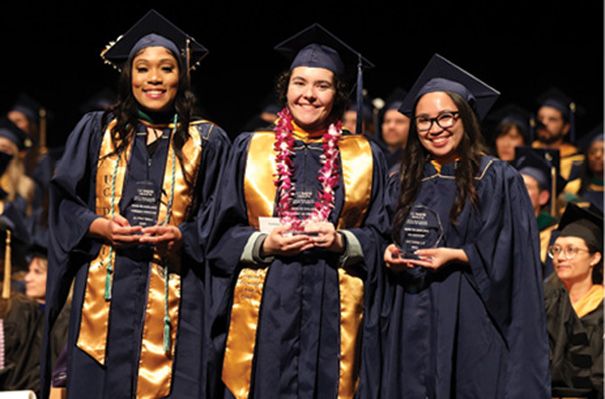
Santiago Garcia, a representative for the entry-level nursing Class of 2023, credits the inclusive environment for rich learning experiences. “I don’t think we’ve gone through a lecture without a peer sharing a past experience about the topic that we’re learning,” he said. “That’s extremely valuable as a student and future clinician to learn more about the people we’ll be taking care of.”
Creating inclusion requires educators to anticipate individual needs, consider presentation of content, assign coursework with real-world meaning, and prioritize skills development. There are online learning programs where alumni facilitate study groups and workshops about testing strategies and time management. A faculty support team works with students, and staff help access resources.
School leaders say the strategies are working. For the past two years, the class of students entering the entry-level nursing program mirrors the program’s applicant pool.
Copeland has never felt this sense of family. “It’s wonderful to look across the room to see someone that looks like you and someone who’s different than you,” she said. “We are tied to each other.”

